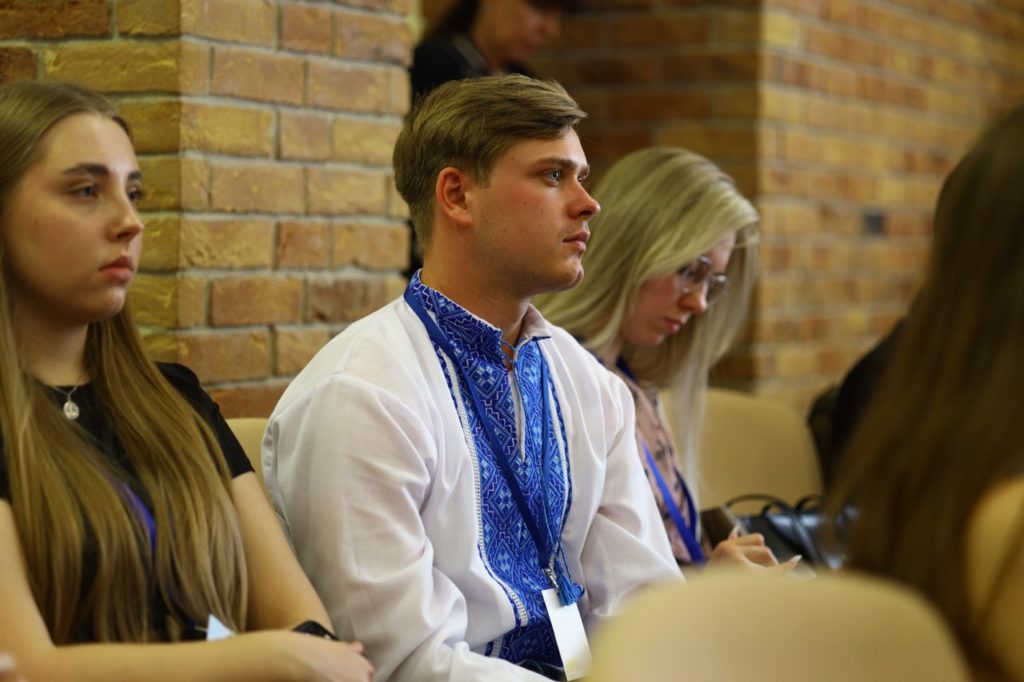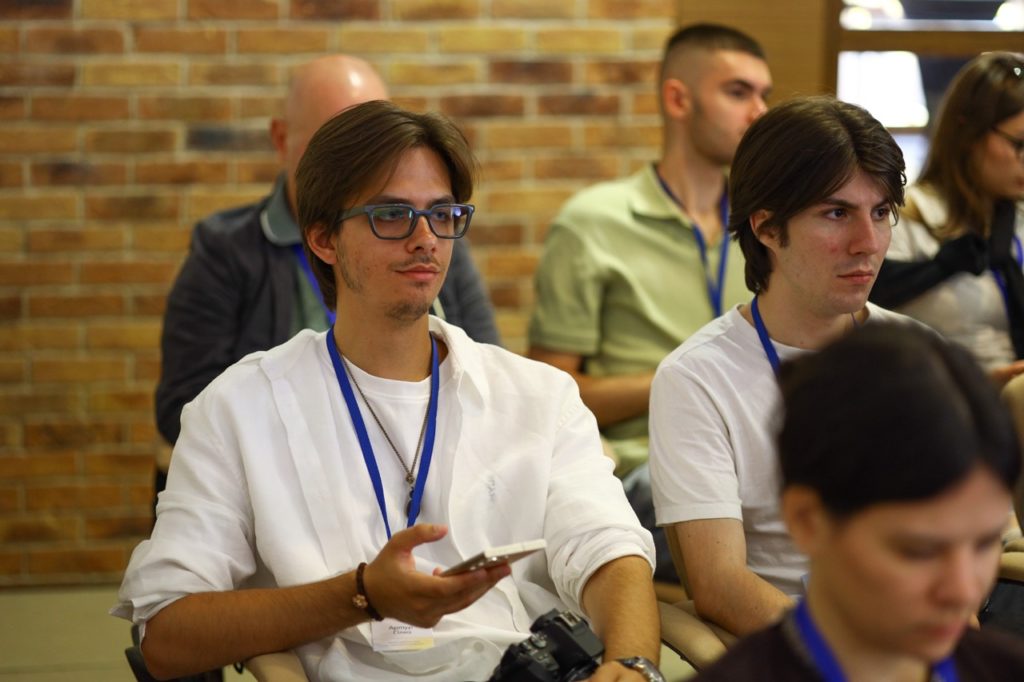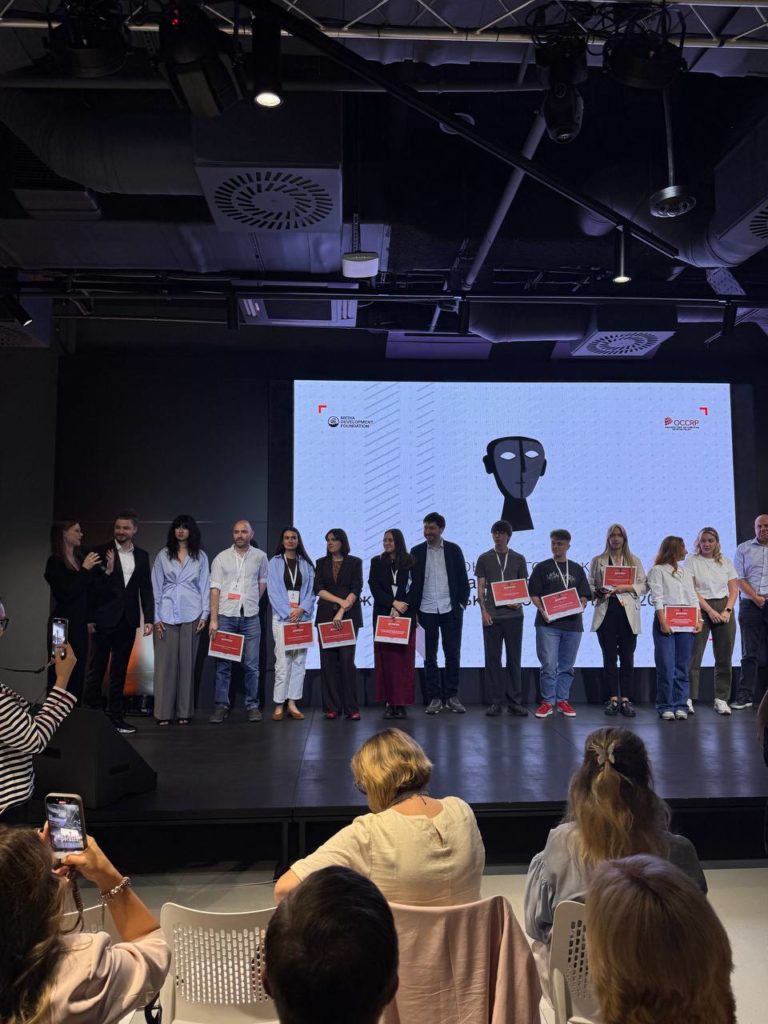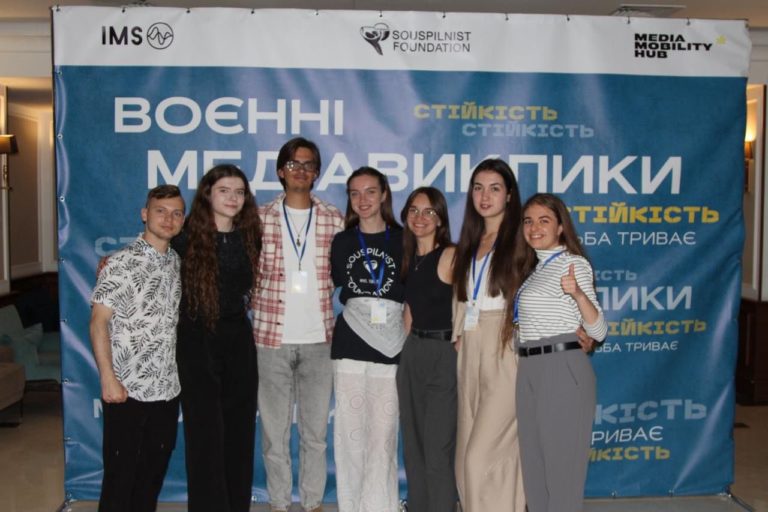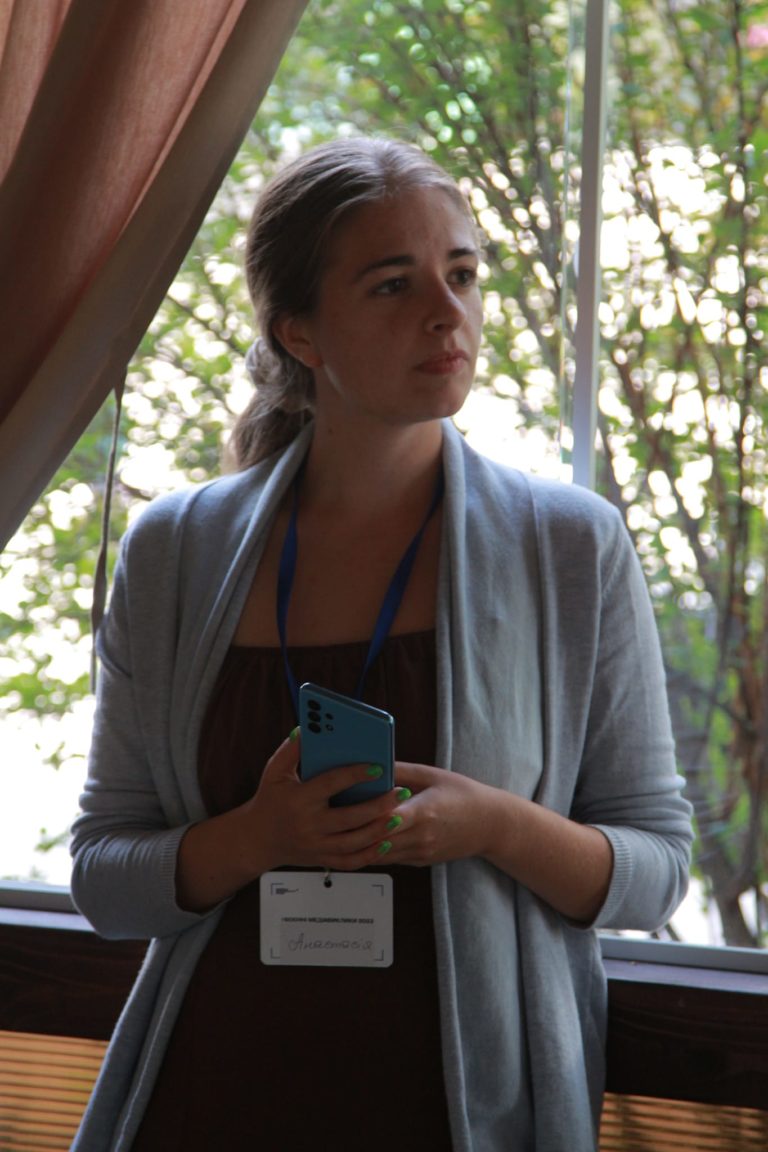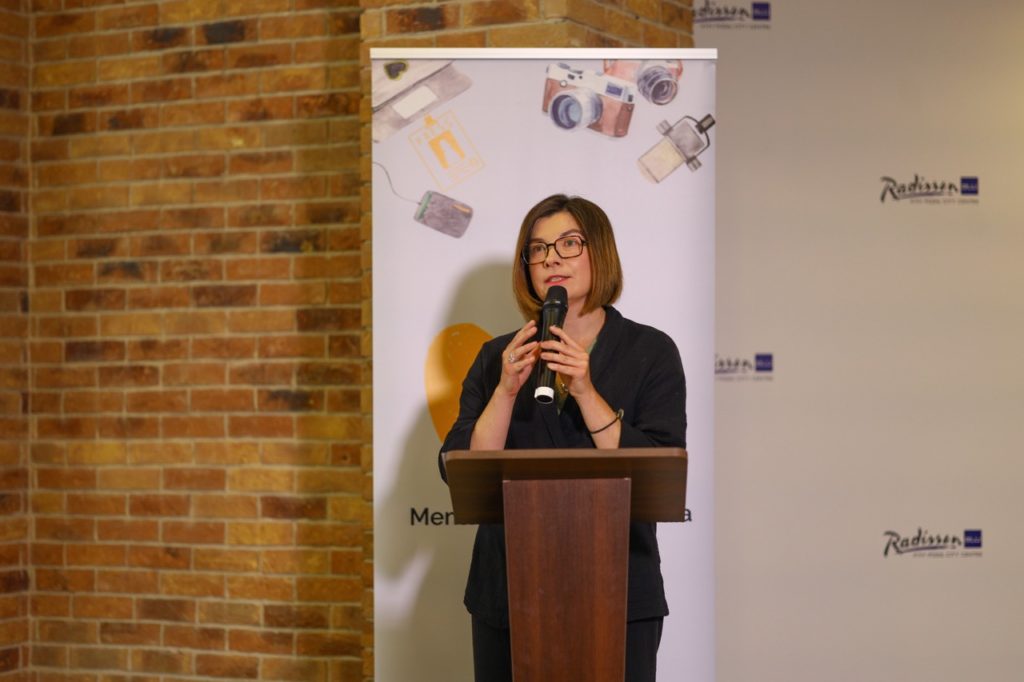
In 2006, at nineteen, I stepped into my first newsroom. A lot was happening then. And it’s worth recalling not only stories of first loves—there was a brief cultural revival, the Yushchenko era, debates about historical memory, the first commemorations for Holodomor victims, the Ukrainian language gaining firmer ground, and the emergence of the literary “2000s generation.” At that time, there was more of the Ukrainian presence around me than I had ever experienced before. Why does that matter? Because the memory of what came before is so easy to erase. But let me remind you. As a high schooler, I lived in a world where anything about leisure, culture, or city life could only be found in Russian-language glossies. I remember when having experience in Russian media or Russian cultural circles was genuinely seen as a point of pride—often with the implication, or outright statement, that Ukrainian experience and context didn’t measure up—whatever that was supposed to mean. That’s why the rise in Ukrainian-language media and cultural content after 2004 was such a vital shift in reality. It showed me I was normal. That my experiences could be written about in books and reported in media—that they could be spoken aloud, in my own language. It was in this context that I realized journalism might be a viable career. A space had finally opened up for me—and for my words.
It’s easy to get used to a more open space. But then Yanukovych came to power, bringing talk of Russian as a second state language, a rollback of school reforms, a total reversal of memory politics, and a new wave of Soviet-style Victory Day hysteria instead of honoring our fallen. Wealthier, oligarch-run media outlets began setting up offices for Russian producers who arrived to teach the locals “proper pronunciation.” All of this coincided with the fallout from the 2008 financial crisis, which toppled everything that had started growing in the early 2000s. In those years, working in the so-called “apolitical” field offered unexpected dividends. Some journalists agreed to collaborate with the authorities and the new administration—many of them would later face a difficult, or very easy, choice when the next Maidan began. Some went into independent or opposition projects. Some set off on the road—by the way, never before had there been so much talk in Ukraine about emigration. So much so that a completely normal conversation could be titled “Why I’m staying.” So much so that my friends and I had a running joke about encounters with border control at Boryspil Airport—the officer was supposed to ask, “What is the purpose of your return from abroad?”
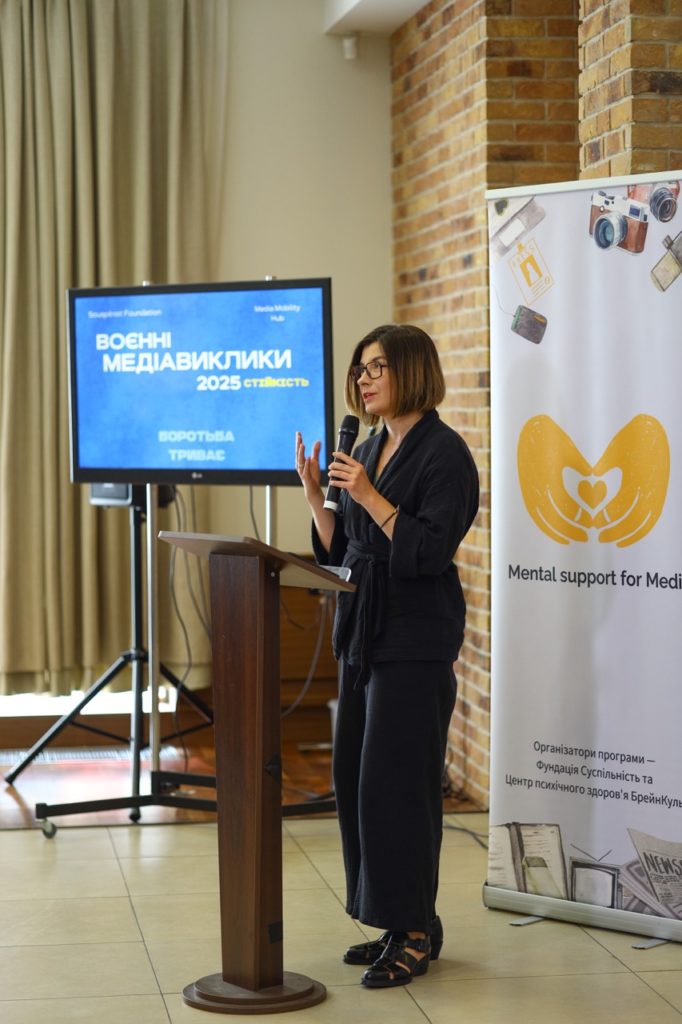
Those were hard times, marked by a constant search for boundaries and the limits of compromise. This included forays into writing in Russian or creating material about Russian artists, as I once did. The only comfort was that the results always turned out hopelessly derivative and, frankly, of no interest to anyone.
The change in 2010 showed me for the first time just how impermanent everything is. I was 23. A few years later, at 27, I would come to the same realization again—tyranny included.
It’s worth saying that our generation had very few chances to become “normal.” We debuted with one revolution. As young but seasoned professionals, we faced another, along with Russian aggression and occupation. And then, as adults in real leadership roles, we faced a full-scale war. Transience, fragility, impermanence. And we’ve learned this can only be endured under one condition. The same one that gave us strength in the 2000s. The same that sustained us under Yanukovych. The same that helped us carry on eleven years ago, when the war began.
That condition is a kind of muscular corset—something that keeps your back straight. It echoes the excellent English expression to exercise your rights: to practice them—like physical training. Without that kind of workout, you can’t really master them. Nor can you master true professional freedom.
Perhaps it’s time to talk about the key challenges we must face with that strengthened spine.
To speak with the world about Ukraine, to speak about this unjust war and Russia’s aggression—while drawing on the strength of a steady voice. Such a voice doesn’t arise from a lack of emotion or simple self-control—or not only from those. A steady voice comes when you’ve done your homework. When you have arguments your audience can understand. When you know history and literature well. And above all, when you can speak about all of it fluently in foreign languages. Does that guarantee understanding, attention, or even hostility toward Russia from our counterparts? Absolutely not. But it does improve our chances.
To speak to your own, native Ukrainian audience—with the strength that comes from confidence in presenting a truthful picture of reality. In lectures, I often joke with students that the hardest part of doing an interview is not ending up interviewing yourself. It’s a joke about listening—and about accepting the behind-the-scenes role, or working in the background. About being transparent glass through which the actual agenda is clearly visible. But it’s no joke at all. There are times when it is extremely difficult for those in Ukrainian media to stay silent. That’s natural for anyone who works with words and carries, in their professional DNA, a deep commitment to seeking and reporting truth. And yet here lies one of our greatest professional temptations: the temptation to speak about ourselves, instead of speaking for others.
To speak about the war—while staying attuned to ethical boundaries. How do we distinguish voyeurism and curiosity from a focus on what genuinely lies within the public interest? How do we acknowledge that “people are curious” doesn’t necessarily mean something is in the public interest? And how do we recognize that some things which clearly are in the public interest may not seem interesting to everyone—meaning they require additional effort, translation, and explanation?
Susan Sontag, in Regarding the Pain of Others, describes a troubling trend: the further the subject of the news is from us—culturally, emotionally—the closer the camera zooms in, giving grotesque close-ups of blood and entrails. But the closer we feel to the subject—the more we see them as part of ourselves—the more dignity we afford them, even in tragedy, even in death. Ukrainian media have been learning this lesson since 2014. But the full-scale Russian invasion has opened new horizons of terror and brutality—and with them, new ethical challenges. How do we suffer? How do we speak of suffering? What do we show?
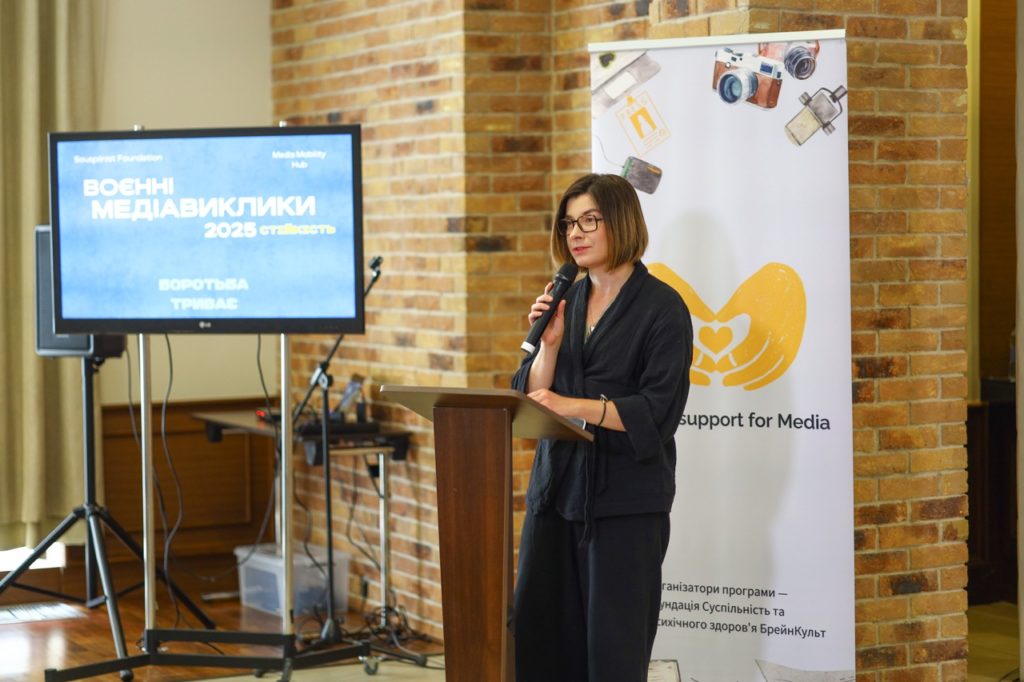
In his remarkable work On the Natural History of Destruction, W.G. Sebald wonders why the experience of massive aerial bombings left behind so little literary record in Germany—not just novels, but diaries, or even notes. I won’t go too deep into that, given how different our context is. But I’ll mention what Sebald describes as a “red line” in representing such trauma—what he calls “the aestheticization of ruins.” That cold gaze that ignores the suffering and sees only something picturesque in the wreckage—something worth describing, maybe even admiring. Our daily work must remain grounded in the world we live in—the morning our audience wakes up to, and the reality our colleagues in the newsroom inhabit. Ignoring that turns war into a grotesque spectacle in the media—voyeurism of battle and pain, a peepshow into other people’s lives.
But it is precisely in Ukraine—now in its twelfth year of living through war—that an exceptional effort continues: the development of an ethical framework for working with the topic of war and with the surrounding reality more broadly. It has long been clear that our approaches have changed, are changing, and will continue to evolve. What makes us unique is that we are doing this ad hoc, on the ground. And at the same time, we have strong support from our colleagues. Our editorial boards and other mechanisms for working with standards and ethics are not punitive. We have succeeded in building a system where dialogue is possible, where respectful disagreement about what and how to change can take place. Responsible media can rely on all these supports and sources. Moreover, they themselves can become such a source—of ethical formation, of sensitivity, of a new quality in working with information and meaning. Of course, one could always stay trapped in social media feuds… and even in that case, evolution is not impossible—but only through the crucible of comment threads and mutual insults.
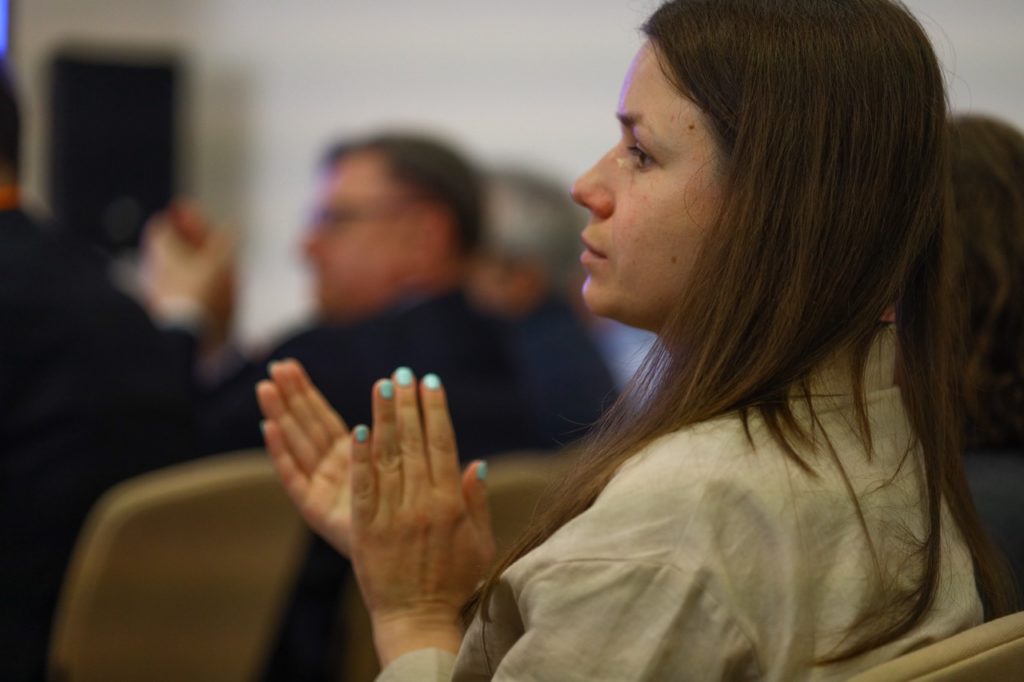
In a world where everything can disappear, it’s easy to fall into despair—or even cynicism. Viktor Frankl, who survived the concentration camps, reminds us that salvation lies in the awareness of meaning, of purpose. That takes work—both outward and inward. Inwardly, it takes strength, commitment, and energy management—to last the marathon. Outwardly, it’s about staying in touch with the context and continually sharpening our relevance for the audience, for colleagues, and for ourselves.
Everything can vanish. It’s important to remember that. Why? Not out of fear or anxiety. But to cultivate a heightened sense of beauty and meaning in the world around us. The great beauty of a fragile world. The great beauty of love.
This text is Iryna Slavinska’s speech at the conference Wartime Media Challenges 2025: Resilience
